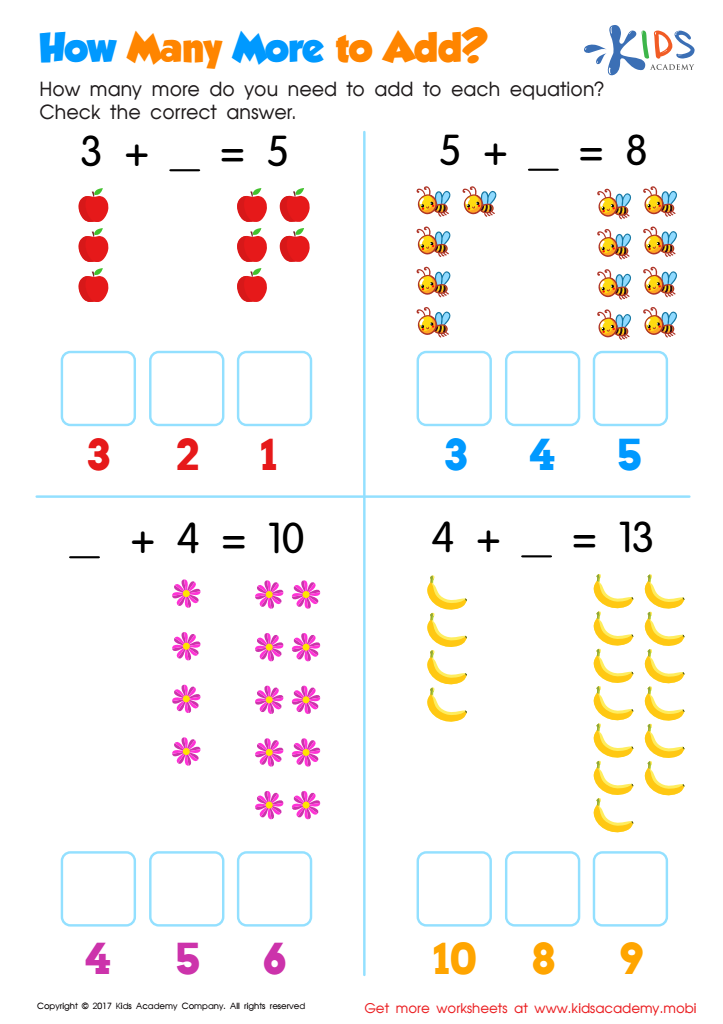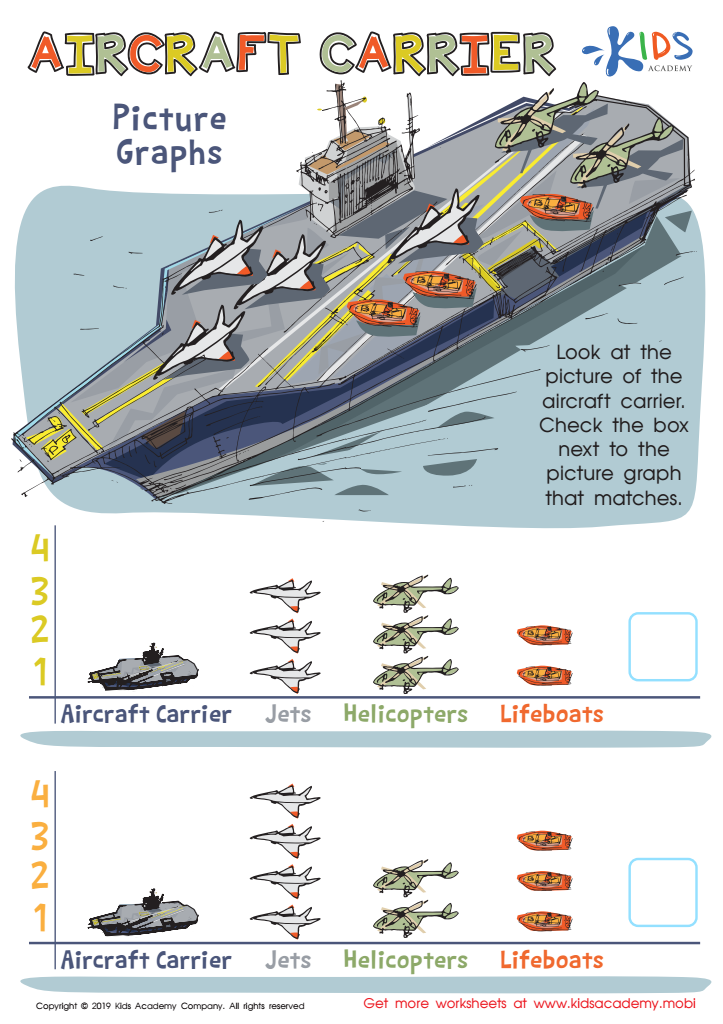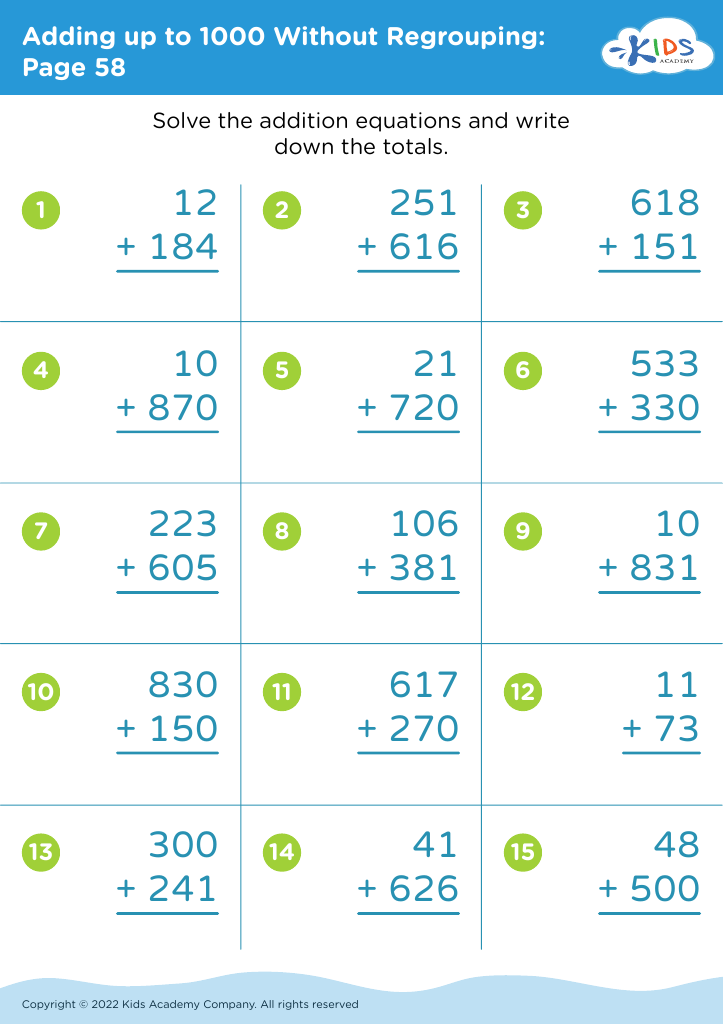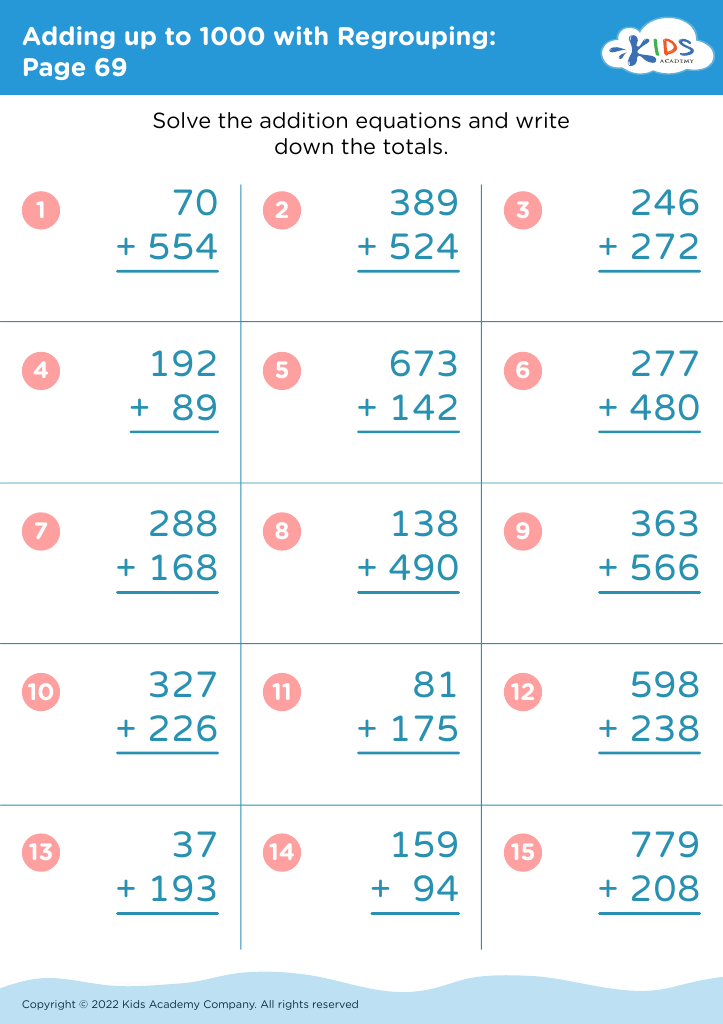Comparison Skills Addition & Subtraction Worksheets for Ages 3-8
5 filtered results
-
From - To
Empower your child's mathematical journey with our Comparison Skills Addition & Subtraction Worksheets, perfect for ages 3-8. Specially designed to enhance your child's analytical skills, these engaging worksheets help them compare quantities using addition and subtraction. Featuring fun themes and colorful illustrations, our activities make learning enjoyable and effective. These worksheets develop critical thinking, boost confidence, and build a strong foundation in math. Perfect for home or classroom use, these resources will aid parents and teachers in nurturing young mathematicians. Make comparing quantities exciting and accessible for your kids with our expertly crafted worksheets.


How Many More to Add Worksheet


Aircraft Carrier Picture Graphs Worksheet
Developing comparison skills in addition and subtraction for children ages 3-8 is essential for several reasons. Firstly, these skills lay the groundwork for future mathematical understanding. At this age, children begin to grasp basic numerical concepts and operations. By learning to compare quantities and understand differences through addition and subtraction, they build a strong foundation for more complex arithmetic in later grades.
In addition, comparison skills foster critical thinking and problem-solving abilities. When children learn to determine which of two quantities is greater, equal, or lesser, they apply logical reasoning—a crucial skill not only in math but across disciplines. For instance, understanding that 5+3 is greater than 6 teaches them to evaluate and analyze different scenarios thoughtfully.
Furthermore, spatial awareness and cognitive development are enhanced through these activities. Engaging in comparison tasks helps children recognize patterns, understand relationships, and organize information systematically. This cognitive progression supports a wide array of everyday activities, such as measuring ingredients while cooking or deciding the shortest route to a destination.
Lastly, comparison skills have practical life applications. Children who can efficiently compare numbers will find it easier to handle real-world tasks involving money, time, and measurement. Therefore, encouraging and nurturing these abilities through playful and educational exercises sets children on a path of academic success and confident problem-solving.



 Assign to My Students
Assign to My Students




















